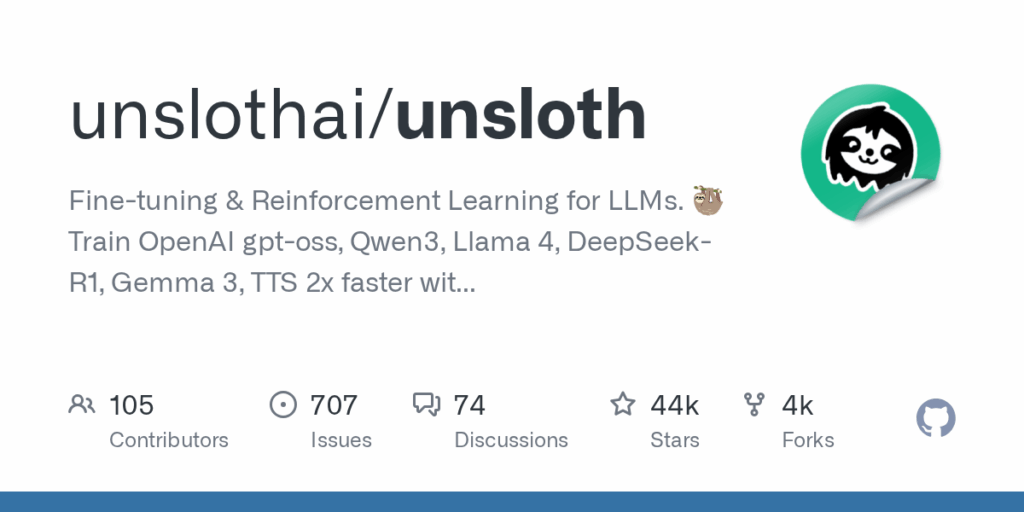unsloth
Basic Information
Unsloth is a toolkit and training library for researchers and engineers who want to fine-tune, pretrain and run transformer-style models more efficiently. The README shows it targets practical model training workflows: full fine-tuning, 4-bit/8-bit/16-bit quantization, reinforcement learning methods (DPO, GRPO, PPO), TTS and STT, multimodal and diffusion models, and compatibility with many popular LLMs such as gpt-oss, Gemma, Qwen, Llama, Mistral and Phi. The project provides notebooks, example code and integration points for Hugging Face TRL and Trainer-based workflows. It also emphasizes long-context training and memory reductions so larger context windows and bigger models can be trained on commodity NVIDIA GPUs. Packaging and installation guidance is provided for pip and conda on Linux and Windows, and the repo includes examples for using FastModel/FastLanguageModel and SFT/DPO trainer configurations.








